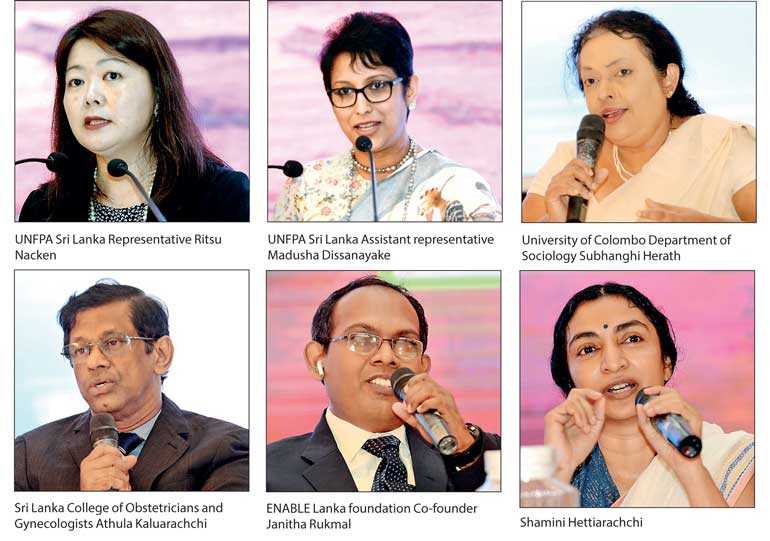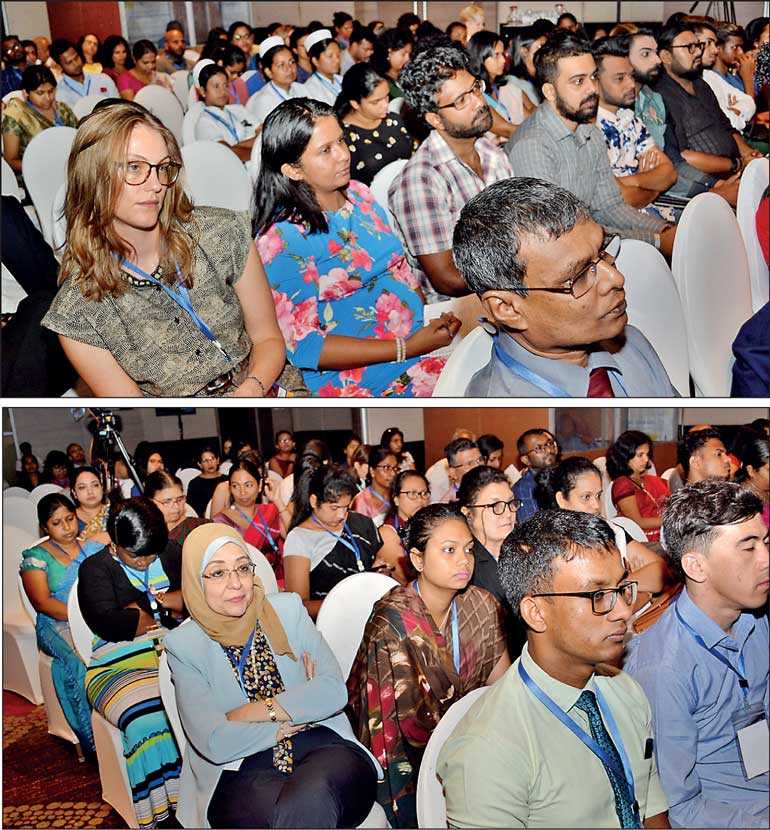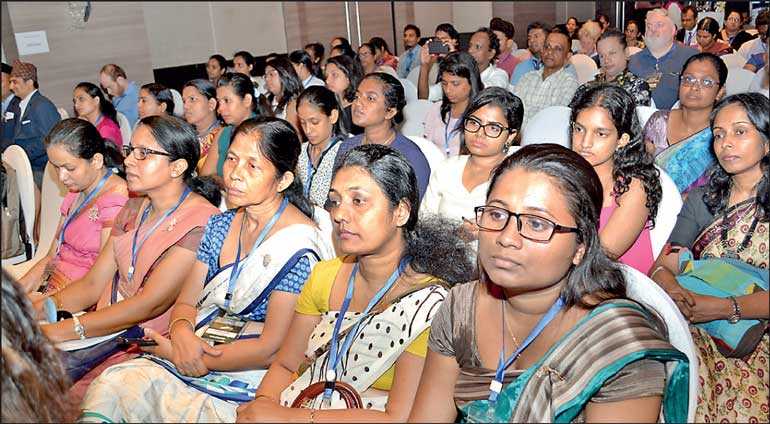Wednesday Feb 18, 2026
Wednesday Feb 18, 2026
Thursday, 27 February 2020 00:00 - - {{hitsCtrl.values.hits}}



By Shailendree Wickrama Adittiya
Despite a ratification of the Convention on the Rights of People with Disabilities in February 2016 and a 2003 National Policy on Disability for Sri Lanka, stigma and marginalisation of people with disabilities and birth defects continues to be a problem in Sri Lanka, a panel discussion by the United Nations Population Fund (UNFPA) in Sri Lanka held yesterday highlighted.
The panel discussion, titled ‘Birth defects and disabilities must be addressed from the lens of human rights and inclusion’, was part of the ninth International Conference on Birth Defects and Disabilities in the Developing World. Giving welcome remarks at the panel was UNFPA representative in Sri Lanka Ritsu Nacken, who drew examples of advances in terms of and barriers to people with disabilities and birth defects from her home country, Japan, before looking at the local context.
“The 2011 census indicates that about 8.7% of total population of Sri Lanka are persons with disabilities. This is not a small number. And we need to recognise that this includes many different types of people with disabilities presenting diverse needs and interests,” she said, adding that Sri Lanka ratified the Convention on the Rights of People with Disabilities in February 2016 and also has a National Policy on Disability.
“Yet, social stigma exists; for example, healthcare providers may hold inaccurate or stereotypical views, specifically about women and girls with disabilities, such as assumptions that they are not sexually active,” she said explaining that people with disabilities are often marginalised when it comes to reproductive health services.
The panel discussion commenced after the welcome address with the Enable Lanka Foundation Co-Founder Janitha Rukmal acting as moderator.
Senior Lecturer at the Disability Studies Department of the Kelaniya University Dr. Shyamani Hettiarachchi was one of the panellists and looked at the creation of policy in Sri Lanka, saying, “If it is a policy that is great, let’s just keep it. It doesn’t matter whose policy it was. We don’t need to rename and rebrand, we just need to agree that it’s a good thing and get on with it.”
She added, “The experience of a young Muslim girl from rural Kilinochchi is different to somebody in Colombo, even of the same age, so we need to really think about all of this when we think about programming.”
Colombo University Medical Faculty Senior Lecturer in Obstetrics and Gynaecology Prof. Athula Kaluarachchi was also on the panel and spoke about the perceived barriers in providing family planning to women with disabilities and birth defects.
He said that the barriers are dependent on the individual and their disability, as well as society and language. “What is available for them in the environment that provides services to them? Do they have access to the services that we talk about, for example, do they have access to get into a clinic?” he asked, bringing focus to disability access to family planning clinics.
Prof. Kaluarachchi also mentioned other aspects that need to be considered when providing services to people with birth defects and disabilities, including long waits in queues, mode of communication with regard to messages and information, and attitudes of healthcare professionals.
While Prof. Kaluarachchi looked at the healthcare system itself, Colombo University Sociology Department Professor in Sociology Prof. Subhangi M.K. Herath looked at the topic of the discussion from a sociological perspective.
Explaining that every person has their own disabling factors, whether it’s physical, mental, or intellectual, Prof. Herath said identifiable or visible birth defects and disabilities result in labelling, attitudes, and stigma.
“Do we allow people with disabilities to aspire or meet the goals they create during their course of life? And at the same time, we can ask the question: do we allow them to create and construct their own social and cultural goals? Do we create an enabling environment for them?” she asked.
Pix by Shehan Gunasekara